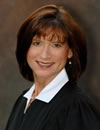Several news accounts report that four pro-Cruz super PACs with the names “Keep the Promise,” “Keep the Promise I,” “Keep the Promise II” and “Keep the Promise III” have pledges for $31 million, a stunning haul for less than a week.
I’ve never seen anyone organize a network of super PACs for the same candidate before. If they share staff and perhaps office space, which seems likely, it sounds like a significant accounting headache.
To me, an interesting question is why would anyone do something like that? I don’t know the answer, but I have a few theories.
1. It’s a new and better way to raise money.
Policy-driven donors. Donors almost certainly have different reasons why they might support Ted Cruz. Some may like his economic policies, while others might be attracted to his policies on social issues or foreign affairs. By having different super PACs, with different bank accounts and different FEC reports, donors could ensure their funds go to support their candidate with messaging in that issue category.
Tactic-driven donors. Some donors may believe TV ads are inefficient, and might want their money spent for other ways of putting out pro-Cruz messages. Perhaps one or more donors wants to see a super PAC run Internet and social media ads or organize a pro-Cruz volunteer force. One of the four super PACs might specialize in new tactics or tactics certain donors would like to support.
Consultant-driven donors. Another set of donors might be close to a political consultant they think does the best work or best ads. These donors might want their money to be spent by that consultant. So there could be another super PAC for that.
By having four super PACs, donors can examine the FEC reports to see if their money was actually spent the way they were promised it would be spent. So this adds a big level of accountability for the donors.
2. It’s a new way to drive a message.
The name of the group can help drive the message in the ad, especially for radio ads. All broadcast ads must have a verbal disclaimer with the group name, and radio ads typically require (senselessly, but that is the law) the group name to be spoken three times.
The four groups could change their name at any time. So if one of the super PACs supports a strong national defense policy, it could adopt a name reinforcing that message and help salvage some of the wasted airtime.













